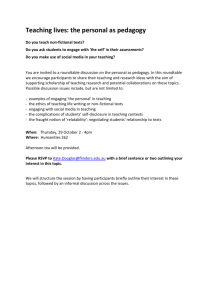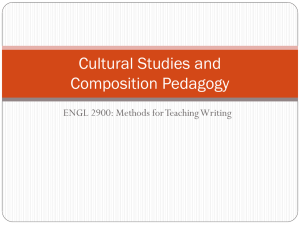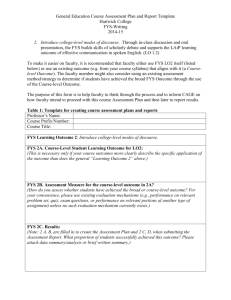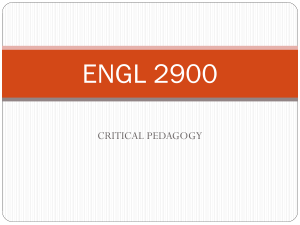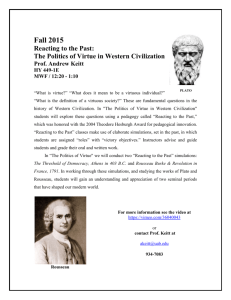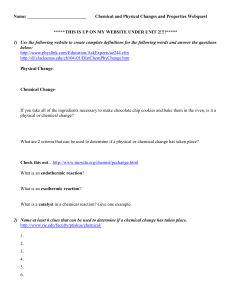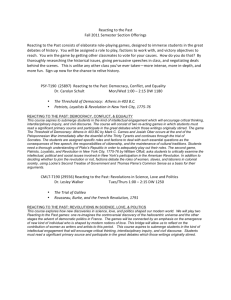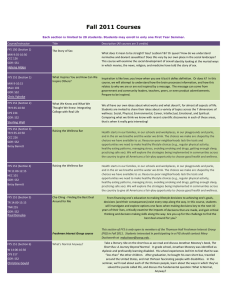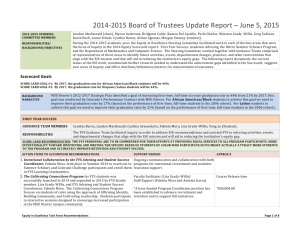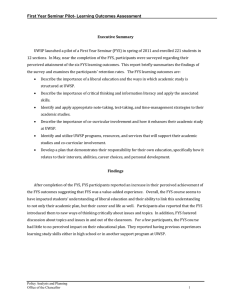Summer Core Course Development Workshop 2012 The Threshold
advertisement
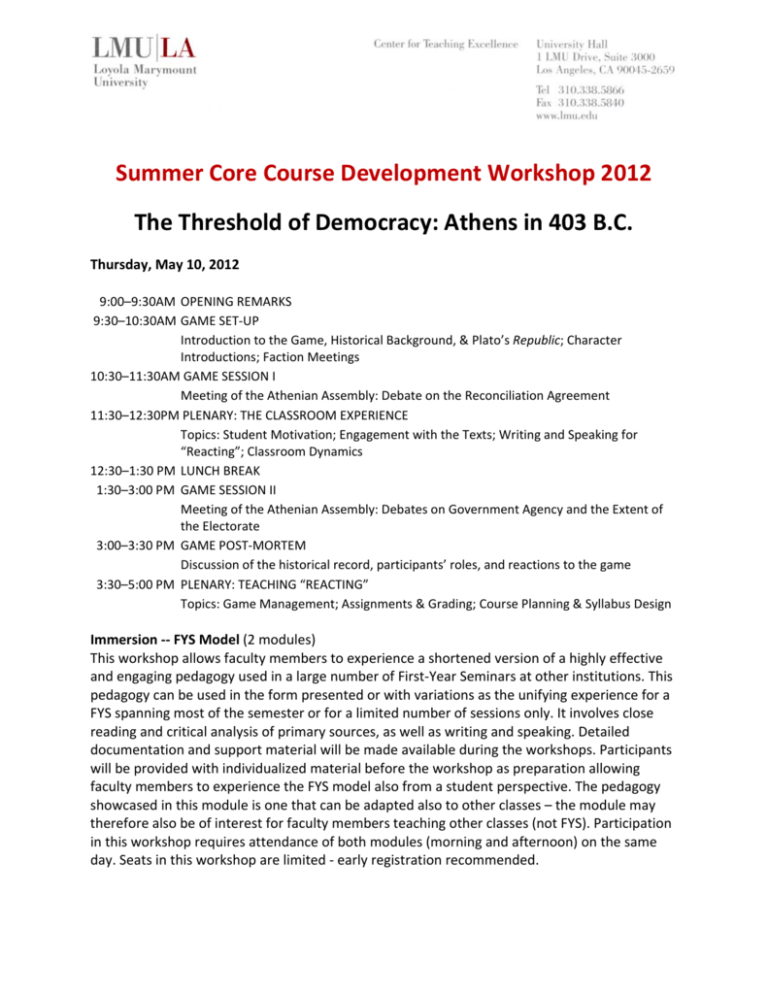
Summer Core Course Development Workshop 2012 The Threshold of Democracy: Athens in 403 B.C. Thursday, May 10, 2012 9:00–9:30AM OPENING REMARKS 9:30–10:30AM GAME SET‐UP Introduction to the Game, Historical Background, & Plato’s Republic; Character Introductions; Faction Meetings 10:30–11:30AM GAME SESSION I Meeting of the Athenian Assembly: Debate on the Reconciliation Agreement 11:30–12:30PM PLENARY: THE CLASSROOM EXPERIENCE Topics: Student Motivation; Engagement with the Texts; Writing and Speaking for “Reacting”; Classroom Dynamics 12:30–1:30 PM LUNCH BREAK 1:30–3:00 PM GAME SESSION II Meeting of the Athenian Assembly: Debates on Government Agency and the Extent of the Electorate 3:00–3:30 PM GAME POST‐MORTEM Discussion of the historical record, participants’ roles, and reactions to the game 3:30–5:00 PM PLENARY: TEACHING “REACTING” Topics: Game Management; Assignments & Grading; Course Planning & Syllabus Design Immersion ‐‐ FYS Model (2 modules) This workshop allows faculty members to experience a shortened version of a highly effective and engaging pedagogy used in a large number of First‐Year Seminars at other institutions. This pedagogy can be used in the form presented or with variations as the unifying experience for a FYS spanning most of the semester or for a limited number of sessions only. It involves close reading and critical analysis of primary sources, as well as writing and speaking. Detailed documentation and support material will be made available during the workshops. Participants will be provided with individualized material before the workshop as preparation allowing faculty members to experience the FYS model also from a student perspective. The pedagogy showcased in this module is one that can be adapted also to other classes – the module may therefore also be of interest for faculty members teaching other classes (not FYS). Participation in this workshop requires attendance of both modules (morning and afternoon) on the same day. Seats in this workshop are limited ‐ early registration recommended. Material: Ober, Josiah and Mark C. Carnes. The Threshold of Democracy: Athens in 403 B.C. New York: Longman, 2004. 1‐72. Plato. The Republic. Translated by Desmond Lee. 2nd ed. New York: Penguin, 2003. Books I, III, and V. Role Descriptions Sample Syllabi Facilitator: Thaddeus Russell is a historian and cultural critic and the author of A Renegade History of the United States (Free Press/Simon & Schuster, 2010). He teaches American history and cultural studies at Occidental College and has taught history, American Studies, and the history of philosophy at Columbia University, Barnard College, the New School for Social Research, and Eugene Lang College. Born and raised in Berkeley, California, Russell graduated from Antioch College and received a PhD in history from Columbia University. Russell's first book, Out of the Jungle: Jimmy Hoffa and the Re‐Making of the American Working Class, was published by Alfred A. Knopf in 2001. He is a frequent contributor to The Daily Beast and has written for The Huffington Post, New York Magazine, The Los Angeles Times, The Boston Globe, The Christian Science Monitor, Salon, and The Atlanta Journal‐Constitution. He has also published scholarly essays in American Quarterly and The Columbia History of Post‐ World War II America. Russell has appeared on the History Channel, Al‐Jazeera, Fox News, and The Daily Show with Jon Stewart. Concept: Reacting to the Past (RTTP) consists of elaborate games, set in the past, in which students are assigned roles informed by classic texts in the history of ideas. Class sessions are run entirely by students; instructors advise and guide students and grade their oral and written work. It seeks to draw students into the past, promote engagement with big ideas, and improve intellectual and academic skills. In most classes students learn by receiving ideas and information from instructors and texts, or they discuss such materials in seminars. “Reacting to the Past” courses employ a different pedagogy. Students learn by taking on roles, informed by classic texts, in elaborate games set in the past; they learn skills—speaking, writing, critical thinking, problem solving, leadership, and teamwork—in order to prevail in difficult and complicated situations. That is because Reacting roles, unlike those in a play, do not have a fixed script and outcome. While students will be obliged to adhere to the philosophical and intellectual beliefs of the historical figures they have been assigned to play, they must devise their own means of expressing those ideas persuasively, in papers, speeches or other public presentations; and students must also pursue a course of action they think will help them win the game.
